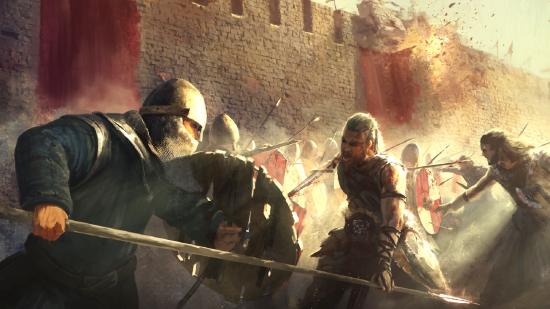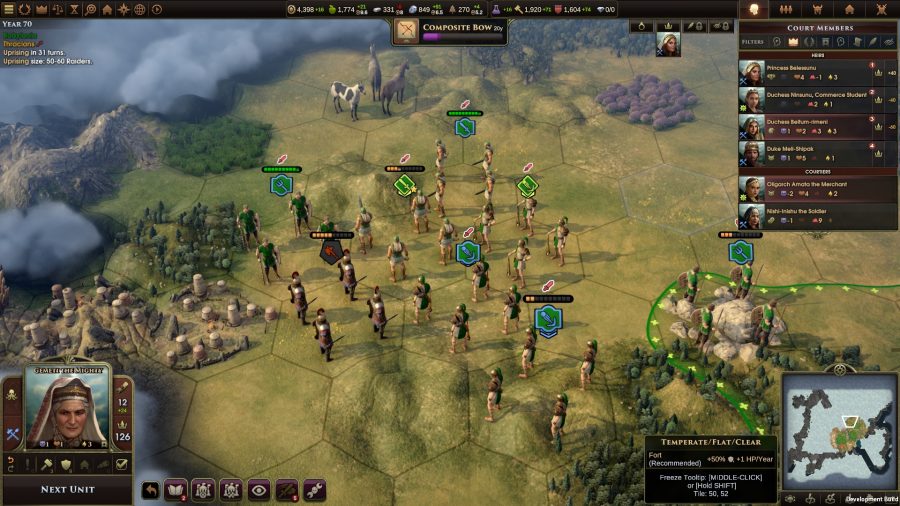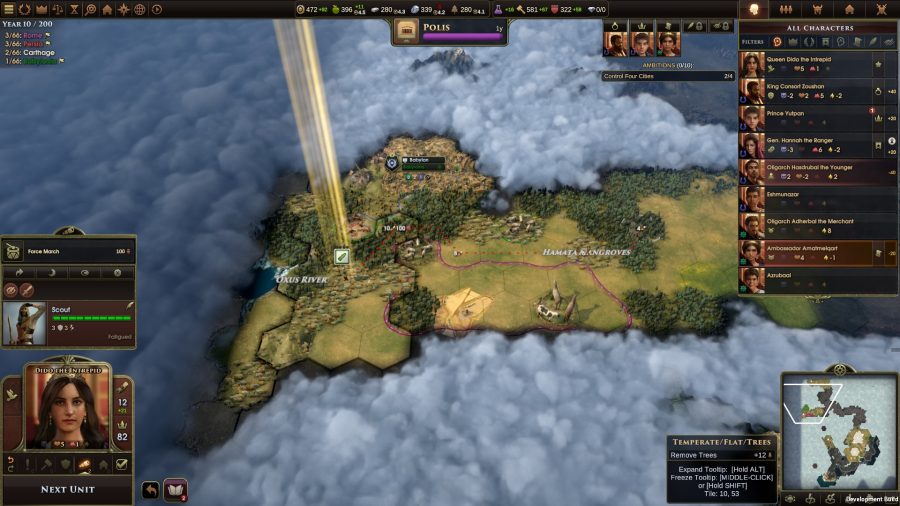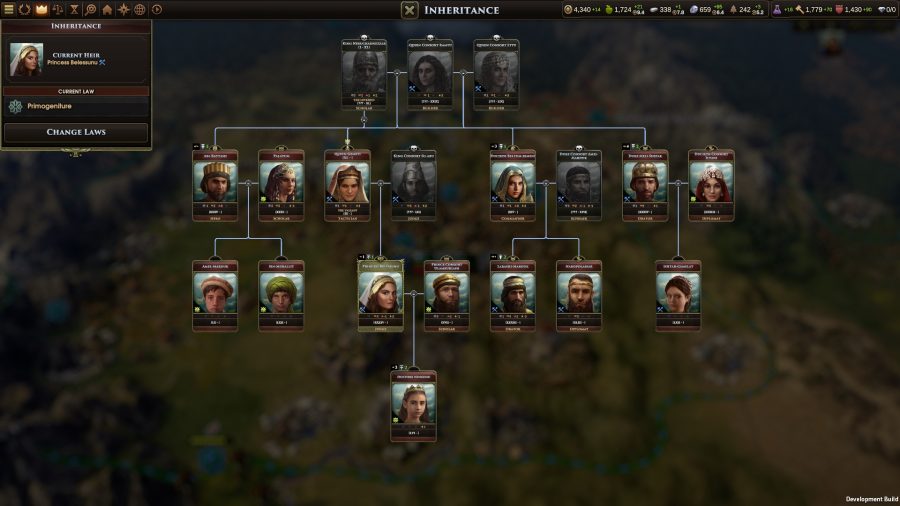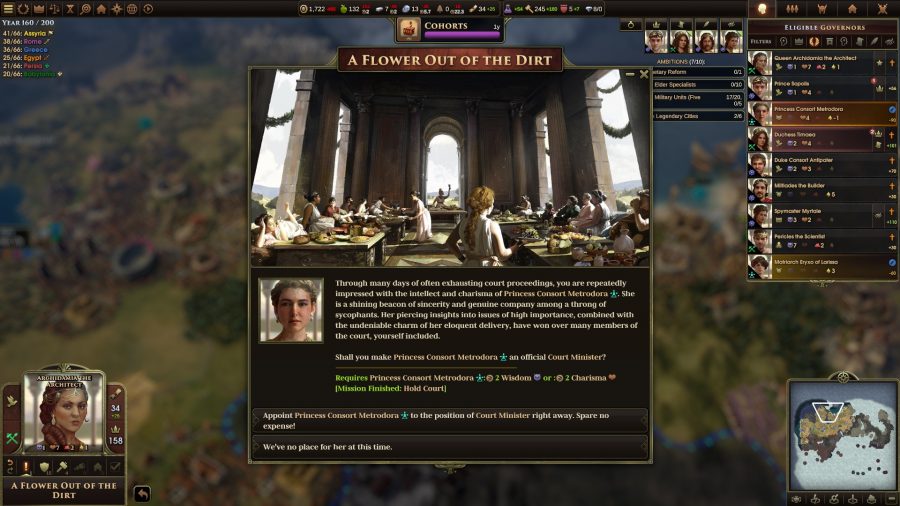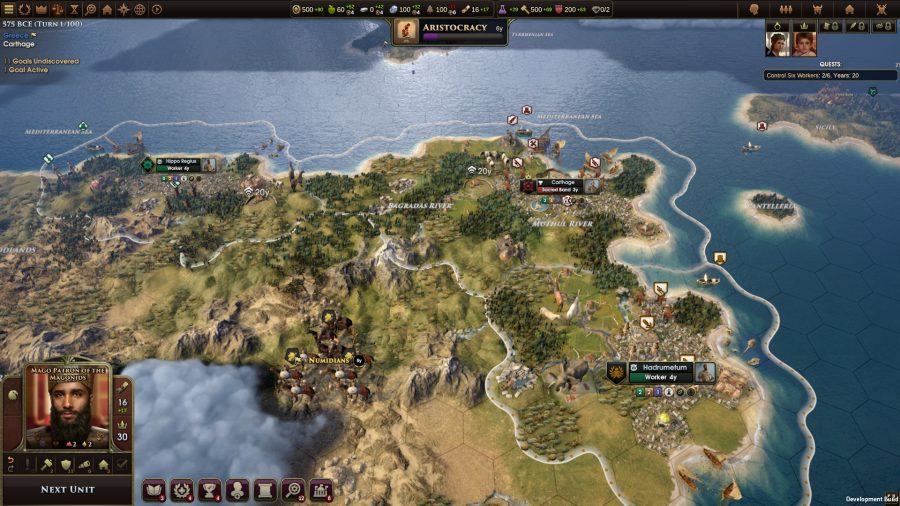Soren Johnson thinks Civilization is too long. His opinion on the matter is probably more valid than most – he was the lead designer on Civilization IV, after all – and he’s currently working on his own distillation of the leading 4X game: Old World (formerly 10 Crowns, if you remember the original announcement).
It’s not as overt a challenger to Civilization as Amplitude’s Humankind, which has its own problems in its attempt to take on the definitive 4X. Old World is more of a subtle commentary on 4X design than an out-and-out rival, but it comes with plenty of smart ideas as to how a historical strategy game can empower the player in each moment.
Step one: don’t be too long. “6,000 years of world history, for Civilization… it’s really a blessing and a curse, right?” Johnson tells us. “Everyone gets it, you get why you want to play the game, and there’s built-in motivation. But the reality is a lot of people just never finish. It’s just too long. We really wanted to make a game that people actually finish.” Games of Old World are locked in what would essentially be Civ’s ‘Classical’ era, and they’re capped at 200 turns.
It may seem strange to be casually criticising one of the most popular strategy game series around, but a game’s success does not make it immune to critique. “I mean ‘too long’… it’s the most successful strategy game there is,” Johnson admits. “Obviously it works, [but] I’m always looking for ways to improve it. How can you actually make the experience better for players?”
Step two: rethink the turn. One of Old World’s best and most interesting innovations is also its most basic – Orders. These are a resource you generate that allows you to issue instructions to units. Instead of every unit getting to move and act, they consume orders to do things – move, fight, forage, and so on. Generating orders is rarely the biggest problem, but the number you can have stored in any one turn is limited (this cap can be raised via techs and buildings).
The more units you have on the field, the more orders you’ll want, especially if you want to accomplish multiple things at once. It’s an abstraction of a state’s limited ability to act, and of the pressures Governments face as to where to focus resources. The inspiration for the mechanic came from the most unlikeliest of places – casual games.
“The early impetus for my idea was actually about ten years ago,” Johnson explains. “They were on Facebook, there were a number of [games] with these energy systems in which you get 20 actions, or you get 2,000 pieces of energy. They were trying to get you to buy more, but it just kind of popped in my head that ‘Oh, if you took this system and put it right on top of a 4X game – what would that look like?’”
Step three: keep it simple, stupid. Johnson is keen to improve on the Civilization formula, but that doesn’t mean his innovations came for the sake of it. Old World’s design is much more deliberate than that, including the decision to keep you in essentially the same era.
Old World is more historically minded than Civilization, with a bit more attention given to the factions such as Rome, Greece, and Babylon. The game still maintains the sandbox design, something Soren describes as “Fantasia” in terms of how history is meshed together. Even in Old World, few of the factions co-existed at the same time, but there’s still more attention to detail than most historical 4X games.
“I think we’ve benefited from also having a more limited time scope,” Johnson says. “It means that our game is simpler. There’s one library. There’s one set of houses, there’s a barracks. We don’t have to redo it in every era. The variety comes through things like characters, families [and events]. What’s really important is that every decision is interesting and important. You’re deciding ‘what do I want to do with my turn?’”
Paradox’s Crusader Kings series has a lot to answer for, but it’s no bad thing that strategy games are re-examining the player’s role in the game and who they represent. God-like abstractions of a collective entity may fuel the power fantasies we all harbour, but it generates more memorable, not to mention lifelike, moments when you’re vulnerable to the ebbs and flows of fortune. These moments give 4X games their power, especially ones like Old World in which games are relatively short and the playable civs relatively few. Replay value has to come from somewhere else.
Final step: be flexible. For indie creators like Mohawk Games, an early access run can be both a blessing and a curse. Getting interest in a game early can help secure much-needed funds to develop the game further, and you get access to more testing data more quickly.
But as more people give money to help fund your passion project, there’s a danger that you end up designing to meet the whims of your primordial playerbase, and not necessarily creating the game you wanted to make in the first place. At the moment, Johnson and his team are trying to capture the best of both worlds.
“There’s no way to account for all the different tastes people bring into the game,” Johnson explains. “For some people, [the events system] is their absolute favourite part of the game. They just want more and more and more. More impactful events, more variety. Then there are other players [where] that was one of their big complaints. There are just too many events. For a long time we tried to balance those.”
Mohawk has settled on a solution in offering the option to tune event frequency, how often characters die, and so on at game setup. Leyla Johnson, Creative Director for Old World (also CEO of Mohawk Games) and Soren’s wife, says the feedback has been promising.
“We were hoping to get feedback that would say ‘fix this’ or ‘this is a problem’, because you want to find these issues in early access. We have 5,000 people in the public Discord to give us feedback, and we didn’t face that. We didn’t have a huge design change from releasing on early access. For us it’s a little bit of nervous excitement. Are they not telling us there’s something that’s major that needs to be fixed? Or are we just really in a very good place?”
Old World may never end up in a title fight for the 4X crown with Civilization, but it’s nevertheless shaping up to be a very interesting deconstruction of Civ’s unique blend of turn-based strategy. It has some very smart ideas, and the future is bright with further potential – the team has just started to introduce historical scenarios to the game.
The first scenario has you found Carthage as Dido, and will be followed by three others that tell the story of that iconic civilisation – Mohawk’s ambition is that some of the choices you make will persist through the different acts. Further historical scenarios are planned after launch, provided this initial set is received well.
Related: The best turn-based strategy games on PC
“Scenarios are a great way to expand the experience without overwhelming the base game. I don’t want to just keep adding more mechanics, rules, and systems. That doesn’t always make it better.”
Old World is releasing exclusively on the Epic Games Store on July 1, 2021.
